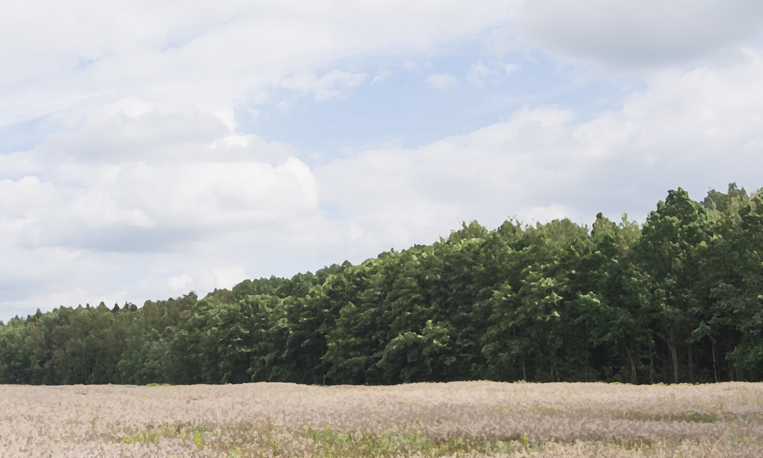verge
(noun, verb)
/vɜrdʒ/
 LISTEN
LISTEN


This picture was taken at the verge of a forest.
The verge is the edge or border of something and, figuratively, the point or limit beyond which something will happen. As a verb, to verge, always followed by the preposition on, means ‘to be at the margin or border of something’, and ‘to come close to something’. To verge, followed by to or toward, also means ‘to incline or tend toward something.’
Example sentences
- The children were at the verge of the woods, making their way through the low undergrowth.
- Mark has been working too hard and is now on the verge of a breakdown because of stress.
- We had our picnic at the point where the fields verge on a small stream.
- If you want to start a business, you have to be realistic; some of your ideas are verging on the ridiculous!
- Ben's character verges toward optimism.
In pop culture
Acclaimed Spanish filmmaker Pedro Almodovar made a film entitled Women on the Verge of a Nervous Breakdown. You can watch the US trailer for the film here:
Additional information
In UK English, a verge is also a narrow strip of ground, usually grassed, next to a road. Example: “We pulled over onto the verge to let the ambulance pass us.”
Did you know?
Saying something is on the verge of happening is another way of saying that it is about to happen. In this sense, “on the verge of” and “about to” are completely interchangeable. Example: “Lucille was on the verge of quitting her job when she was promoted to sales manager.”
Origin
Verge dates back to the mid-14th century, when the Middle English verge meant ‘penis,’ though this sense disappeared in less than 100 years. Verge reappeared in the mid-15th century, now meaning ‘shaft, column, or rod.’ It comes from the Middle French verge, meaning ‘rod,’ and the Old French verge, which could mean ‘twig or branch,’ ‘measuring rod,’ ‘penis,’ or ‘rod or wand of office’ (this last sense is the origin for the figurative sense meaning ‘boundary or jurisdiction,’ symbolized by a steward’s rod). It can be traced back to the Latin noun virga (shoot, rod, stick or branch). The Modern English sense (edge or border) comes from the idea of within the verge, as in under the jurisdiction of the rod, which was then taken to mean ‘the border around this jurisdiction.’ The sense ‘the point at which something will happen’ first appeared around the year 1600. The verb verge (to tend or incline) is unrelated to the noun. It dates back to around the year 1600, and comes from the Latin vergere (to turn, bend, be inclined). It can be traced back to the Proto-Indo-European root wer-, meaning ‘to turn or to bend.’ Influenced by the noun, it soon added the meaning ‘to provide with a border’ in the early 17th century, and ‘to be adjacent to’ in the late 18th century.
Word of the Day is released Monday through Friday.



